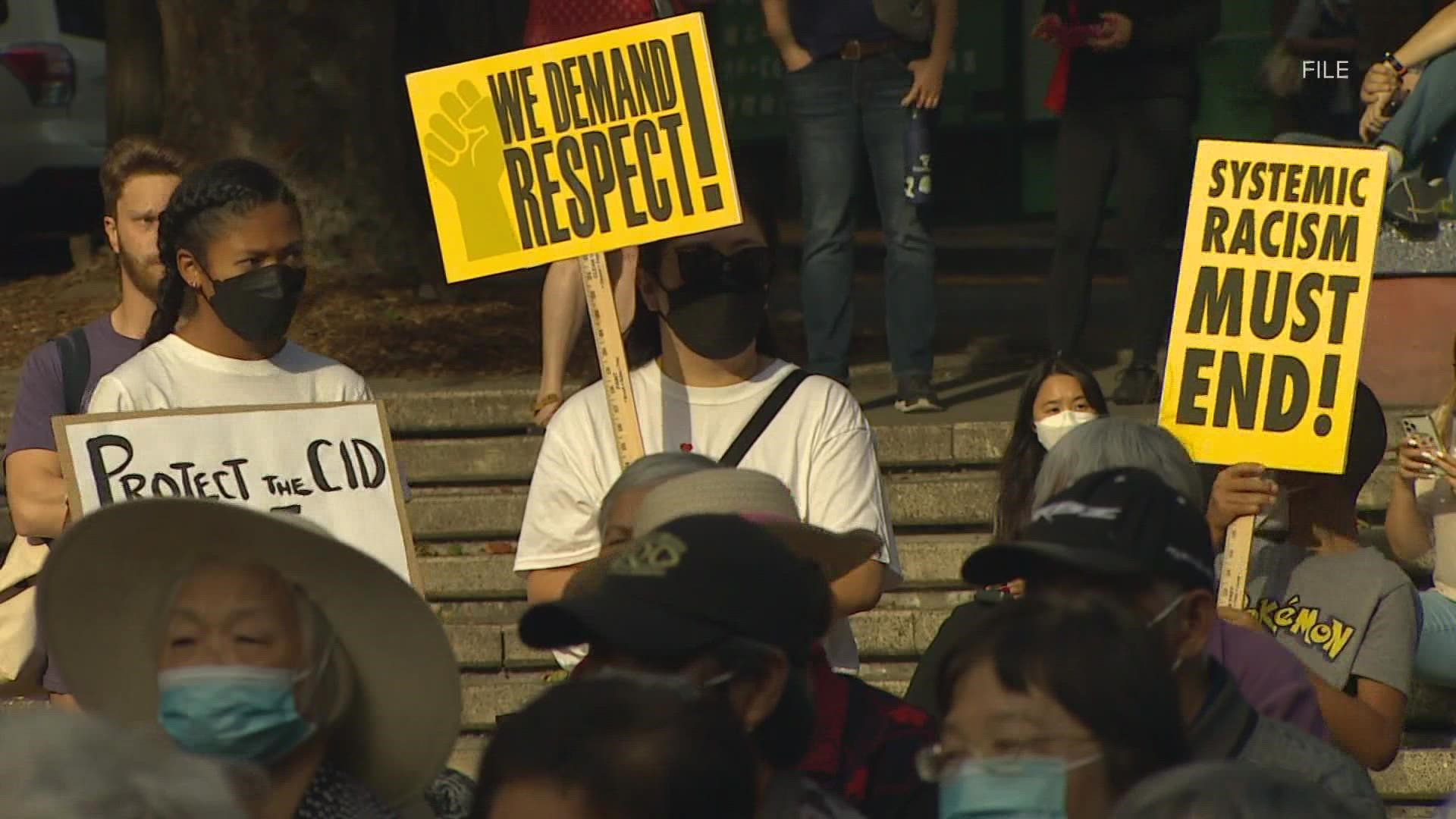SEATTLE — King County is confirming more details about current plans for a “SODO Services Hub" for 150 unhoused Washingtonians.
The plan, first announced in March, has received increased attention as some residents say they were not given significant notice or opportunities for input. County officials said they offered public engagement opportunities, though they agree more are needed moving forward.
More information on engagement efforts and how to share input can be found here.
As of September, the county said the site will add "enhanced shelter" amenities near the current site of a 270-bed shelter contracted out to the Salvation Army. The county said the shelter, initially launched in conjunction with the COVID-19 pandemic response, was on a lease set to expire before the cold weather season. Instead, the county said it extended the lease for five years, making plans to use additional land and buildings on site for expanded services - with assistance from city funding and in coordination with the King County Regional Homelessness Authority
According to Leo Flor, director for King County Department of Community and Human Services, the Hub will include a behavioral health shelter, a 24-hour sobering center and 40-50 “pallet shelters,” which are often referred to as tiny homes.
“We need more shelter. We need more housing. And we need it in every part of the county,” Flor said. “Renton, Federal Way ... Auburn, other parts of Seattle, Issaquah, Kirkland, Redmond. Every time we cite a facility there is reasonable concern and curiosity from the community and one of the questions they often ask is why here? Why this specific location? Sometimes they say it's too far from services, sometimes too many services. And our answer is, we need it everywhere.”
Flor said, the hub will house an additional 150 people, alongside the 270 currently served in the Salvation Army shelter. The site was selected based on the success of its current use and the available infrastructure for continued services. It will also allow the 270-bed site to stay open, with more than 40 bathrooms and support services that have empowered about one-third of residents to hold steady employment.
“You don't have to displace an existing use, it's open, it's wide, people are already using it as a place to encamp and we want to be able to provide a better alternative to that,” Flor said.
In recent weeks, neighbors in the Chinatown International District have raised concerns about community input into the process, including business owner Tanya Woo. Recently, hundreds held a rally voicing opposition and questions about the process.
“Our biggest issue was the lack of communication, the lack of outreach, the lack of transparency," Woo said. "We have no idea what's going on, we're left in the dark, and we hear the city and county are making important decisions about our community without our input, and we feel like this is systemic racism at play and we demand our opinions be heard."
Flor said the county has done community engagement and also needs to do more as the process continues.
“I intend to go into that conversation flexibly, and hearing with open ears and an open heart about what that should look like here, but we are going to be resolute about the fact that we have to bring thousands of people inside and this site can be a really important part of that,” Flor said.
In addition to listening to people living nearby, the county is taking input from people currently living outside, Flor said. He hopes conversations surrounding the issue will value each person the issue impacts.
“A lot of people will talk about people experiencing homelessness in ways that subtly or explicitly dehumanize them,” Flor said. "I think the next step for progress for bringing people inside who might have chemical dependency issues, who might have been outside for a long time, is to bring them inside and humanize them.”
Woo said for her part and that of many people she’s talked with, their issue is not with unhoused people who need shelter. Her concern is with people who "prey on unhoused people" and the associated problems she said they can bring to neighborhoods. More-so, she takes issue with the governmental process surrounding the project.
Residents of the International District have also raised concerns about racial equity.
“It feels like King County and the City of Seattle is engaged in this pattern of institutional racism that they may not be aware that they are engaging in and they need to know that it needs to stop,” Woo said.
Flor said he recognizes many people are concerned about whether sheltering more people in the area constitutes structural racism.
“Structural racism has shaped this entire city and nation and certainly shows up in the way our society is organized here today, and that's just true and nobody is going to dispute that,” Flor said. “It is also true that the reason why people who identify as Black or African American make up six-percent of our county's population and thirty-percent of folks who are homeless, and Native folks who make up less than one-percent of our county's population on land that was originally theirs make up five-percent of people experiencing homelessness, that is also a manifestation of structural racism.”
Woo said some concerned neighbors in the CID recently met with representatives from Flor's office, as well as that of the county executive, mayor and city and county councilmembers. They asked for a moratorium on the project and were told that will not happen, but they have been invited for an on-site tour of the current shelter and are hopeful that will lead to more engagement opportunities, she said.
They plan to rally outside upcoming Seattle City Council and King County Council meetings.
Flor said, currently, around 7,500 people are living outside in King County.
"We need more shelter. We need more housing. And we need it in every part of the county," Flor said.

